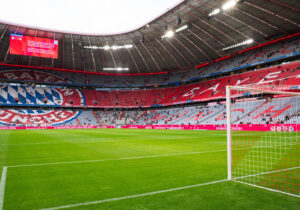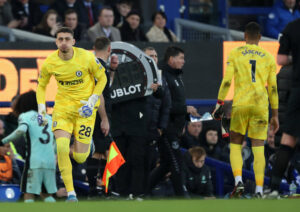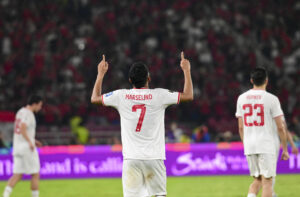Greenpeace parachutists landing on the pitch before kick-off. Starting elevens littered with Champions League winners. Kylian Mbappe. So much about this enticing Group F encounter between two of Europe’s giants in France and Germany, to the amateur footballer at least, seemed almost otherworldly. Ironic then that, in the end, the game was settled by a goal that wouldn’t look out of place on a playing field on a Sunday morning.
Veteran defender Mats Hummels – or, more specifically, the right shin of veteran defender Mats Hummels – proved the difference when he clumsily diverted a Lucas Hernandez cross into the roof of his own net after 20 minutes. It was a moment that ultimately became emblematic of the fixture at large: a mouth-watering contest that promised captivating individual match-ups and flowing, aesthetically absorbing football that, well, never really lived up to any of it.
France Defeat Germany in Euro 2020’s Group of Death
France Off to the Perfect Start
Still, in a game that pitted the current World champions against the continent’s most decorated nation, it would be remiss to conclude that there wasn’t plenty to be enthralled by. On a sultry June evening on day five of Euro 2020, the Allianz Arena was transformed into a melting pot of footballing ideologies. Die Mannschaft: a robust, disciplined group in transition. Les Bleus: an expansive, star-laden team almost unfairly blessed with talent.
As it happened, it was the latter – the favourites for many to go all the way this summer – that came out on top. Always threatening but rarely fluid, Didier Deschamps’ side, despite having two goals chalked off for offside, were far from their unparalleled best. Yet they almost always seemed to be in control, taking the game to Germany in the first half before reverting to a more conservative approach in the second, shrewdly luring Joachim Löw’s ageing team up the pitch before swiftly catching them on the break. If there had been friction in the French camp in the build-up, it certainly didn’t filter through onto the turf.
The absence of Leon Goretzka in Löw’s engine room was telling. Without the dynamic box-to-box midfielder, the Germans lacked the same power and drive to compete with the likes of Paul Pogba, N’Golo Kante and Adrien Rabiot, whose left-footed shot late on rattled the outside of the post. They gave a much better account of themselves in the second half, with Serge Gnabry wasting arguably their best chance when his looping volley should have at least tested Hugo Lloris in the French goal. But elsewhere, Kai Havertz, Chelsea’s hero against Manchester City in Porto, cut a largely anonymous figure, while a resurgent Thomas Müller was rarely afforded any space to create.
The Balance of Les Blues
For all their enviable firepower – a formidable front three of Karim Benzema, Antoine Griezmann and Mbappe – it was France’s balance defensively that, on this showing, was the difference. Protected in no small way by a one-man-midfield in Kante, Raphael Varane and the bruising Presnel Kimpembe, flanked by willing workers in Hernandez and Benjamin Pavard, were commanding and seemingly impenetrable. If the team of 1998 and 2000 are widely considered to be France’s golden generation, this lot are coming mighty close to taking their crown.
But in the end, perhaps the clues for how this game would play out were hiding in plain sight all along: in the surnames of the teams’ respective managers. Löw’s Germany look unimaginative and lacking in confidence. As for Deschamps’ side, without wishing to tempt fate too much after only one game, just look at those last six letters.
Main Photo






